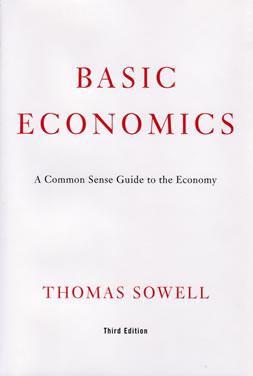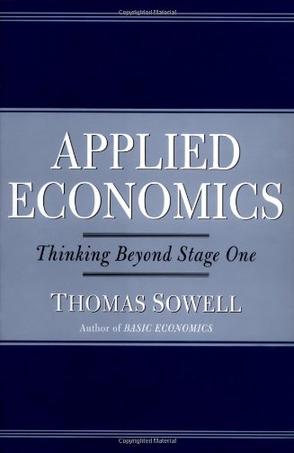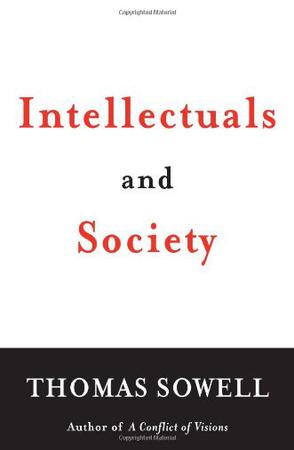-

Thomas Sowell Reader
These selections from the many writings of Thomas Sowell over a period of a half century cover social, economic, cultural, legal, educational, and political issues. The sources range from Dr. Sowell's letters, books, newspaper columns, and articles in both scholarly journals and popular magazines. The topics range from late-talking children to "tax cuts for the rich," baseball, race, war, the role of judges, medical care, and the rhetoric of politicians. These topics are dealt with by sometimes drawing on history, sometimes drawing on economics, and sometimes drawing on a sense of humor. -

Basic Economics
-

Applied Economics
-

A Conflict of Visions
Controversies in politics arise from many sources, but the conflicts that endure for generations or centuries show a remarkably consistent pattern. In this classic work, Thomas Sowell analyzes the two competing visions that shape our debates about the nature of reason, justice, equality, and power: the "constrained" vision, which sees human nature as unchanging and selfish, and the "unconstrained" vision, in which human nature is malleable and perfectible. He describes how these two radically opposed views have manifested themselves in the political controversies of the past two centuries, including such contemporary issues as welfare reform, social justice, and crime. Updated to include sweeping political changes since its first publication in 1987, this revised edition of A Conflict of Visions offers a convincing case that ethical and policy disputes circle around the disparity between both outlooks. -

Intellectuals and Society
The influence of intellectuals is not only greater than in previous eras but also takes a very different form from that envisioned by those like Machiavelli and others who have wanted to directly influence rulers. It has not been by shaping the opinions or directing the actions of the holders of power that modern intellectuals have most influenced the course of events, but by shaping public opinion in ways that affect the actions of power holders in democratic societies, whether or not those power holders accept the general vision or the particular policies favored by intellectuals. Even government leaders with disdain or contempt for intellectuals have had to bend to the climate of opinion shaped by those intellectuals. Intellectuals and Society not only examines the track record of intellectuals in the things they have advocated but also analyzes the incentives and constraints under which their views and visions have emerged. One of the most surprising aspects of this study is how often intellectuals have been proved not only wrong, but grossly and disastrously wrong in their prescriptions for the ills of society—and how little their views have changed in response to empirical evidence of the disasters entailed by those views. -

Controversial Essays